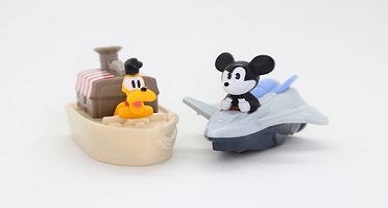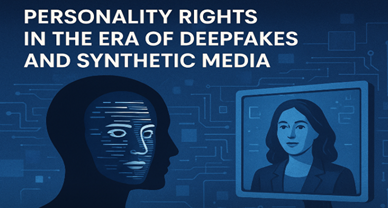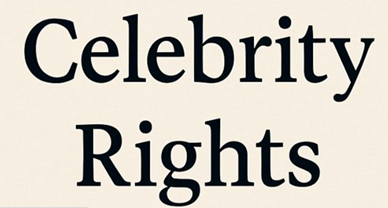The Expiration of ‘Steamboat Willie’ Mickey Mouse: What It Means for the Future of the Iconic Character
Introduction
I would like to start this blog by reminding you of your childhood days when you were around 10-12 years old and you are sitting right in front of your TV, without blinking your eyes and watching your favourite cartoon shows. I am sure that you have a list of favourite shows and I can guarantee that Mickey Mouse would be one of your dearest characters of all time. Watching him go on adventures with his unique (patentable) gadgets and his friends was the highlight of the day for me.
In January 2024 the copyright for the Mickey Mouse, from the ‘Steamboat Willie’ has expired and the character has entered in the public domain. Copyrights are the exclusive rights given to the author of a creative work which protects their work from piracies and uses it unethically. In India, the tenure for a copyright is the duration of the author’s life plus 60 years. Under US laws, the tenure for the copyrights is the duration of the author’s life plus 70 years and if the work was made for hire, then the duration is 95 years. [1]
This does not mean that anyone can just use the character like that. Only the Mickey from the movie ‘Steamboat Willie’ has entered public domain. That Mickey and today’s Mickey are very different, Disney has modified the character regularly by giving him bigger ears, pupils and another pair of shorts while adding a pair of gloves. They still have the copyright of the different versions of the character and hence only the ‘Steamboat Mickey’ can be used with limitations.
Mickey Mouse Protection Act of 1998
Disney’s foundation is the characters they own, they earn millions only from merchandising their characters. People around the world (including me), are crazy about Disneylands. You can see the outlines of the Mickey’s head hidden around the Disneyland. The New York Times once reported that how Disney forced a daycare centre in Florida to remove a Minnie Mouse mural because it violated their copyright. Gravestones of children with Winnie the Pooh engravings on it were told to remove the engravings for the same matter.[2] Therefore, you can understand how possessive Disney is for their characters. Disney has always been like this, they played the most important part for the extension of the copyright term since the beginning. Their lobbying efforts first extended the copyright duration for the author’s life plus 50 years for individual works and 75 years for corporate owned works in the Copyright act of 1976. Further, to specially protect Mickey Mouse, their lobbying efforts contributed to the extension of duration up to 120 years for the corporate own works. This was done in the Copyright Term Extension Act, 1998 which is famously also known as “The Mickey Mouse Protection Act”.
It is kind of ironic how Disney kept fighting for the extension while the Steamboat Mickey itself was a lot inspired by the elements present in public domain. Walt Disney once told American magazine that how the character was inspired by Charlie Chaplin and Douglas Fairbanks’s silent films. Ub Iwerks – the animator of the movie ‘Steamboat Willie’, also stated that he was inspired by Douglas Fairbanks, who was the superhero of his time, for the character. Even the name “Steamboat Willie” was a nod to the title of Buster Keaton’s film Steamboat Bill Jr.[3] The movie also included a song called “turkey in the straw” which was in the public domain while producing the movie.
What can happen to Mickey Mouse now?
There are two ways this scenario can go – one is where people are using it to print it on t-shirts, mugs and making posters out of it, making similar shows/movies to pass it to the next generation so they could enjoy the tales of the Mickey Mouse. Second scenario is a movie where someone is dressed like Mickey Mouse and is going on a killing streak. People who love Mickey would hate to see this. But what if I tell you the second scenario is happening very soon? Yes, it is true. There is a trailer for a movie which was released earlier this year which is putting the character in the horror/slasher genre. It is called ‘Mickey’s Mouse trap’ and he is a serial killer in this one. There is another horror adventure game coming in, which is essentially based on the same character. Recently, Winnie the Pooh stories by A.A. Milne entered the public domain last year and there is already a horror movie called ‘Winnie the Pooh: blood and honey’.

In the later versions of the Mickey Mouse not everything is copyrightable[4] so a person can use the squeaky voice from the later versions for their version of Steamboat Mickey or they can use any voice they like. The personality from the later versions is also not copyrightable so your version of Mickey can have any personality, let it be a serial killer, hopeless romantic, a sportsperson, a superhero or an overwhelmed corporate employee. You have plenty of room to play there. Lastly about the colour scheme, the Steamboat Mickey was depicted in black and white, Jennifer Jenkins – Director of Duke Center for Public Domain, is of the opinion that you don’t have to stick to a monochrome palette but she would also like to get a poll of experts on this one. She also said that it is not clear that when a colour palette by itself meets the threshold requirements for copyrightability.
Conclusion
Now the question that arises is, if there is anything Disney can do to prevent Mickey from turning into a serial killer or anything that can harm the image of Mickey Mouse? The answer is – no. Disney cannot sue anyone for copyright infringement as long as they use the Steamboat Mickey, they can only take action if the creator uses something from the later versions of the Mickey to which Disney still holds a copyright. Disney still holds the trademark for the Steamboat Willie Mickey Mouse, trademarks are used by brands to differentiate between the products or services provided by them and others available in the market. Trademarks are non-exhaustive in nature if the company keeps on renewing it. So as long as they have the trademark, they can sue anyone if they violate it.
In coming years, some of the iconic DC characters – Superman and Lois Lane (in 2034), Batman (in 2035), The Joker (in 2036) and Wonder Woman (in 2037), will be entering in the public domain. Sir Arthur Conan Doyle’s Sherlock entered in the public domain last year. Marvel’s Captain America will be entering in the public domain in 2036. Ideally, it would be great to watch these characters from a different perspective, imagine Superman being evil and destroying the entire Metropolis or Batman wearing his costume and flying around the city in daylight or Sherlock Holmes killing someone and then hiding it so perfectly that the cops could never get to him. While these characters entering in the public domain opens the door for new ways of looking at them it also increases the anxiety of the creators and the studios who own them because they never know how the public will start absorbing it.
Author:- Vedansh Jinde, in case of any queries please contact/write back to us at support@ipandlegalfilings.com or IP & Legal Filing.
References
- What is copyright?
https://www.copyright.gov/what-is-copyright
- Mickey Mouse heads to the public domain, but what does that mean for Disney and other copyright holders?
https://carey.jhu.edu/articles/mickey-public-domain-copyright-holders
- Mickey, Disney, and the Public Domain: a 95-year Love Triangle https://web.law.duke.edu/cspd/mickey/
- What you can and can’t do with Mickey Mouse now https://www.fastcompany.com/91005408/what-you-can-and-cant-do-with-mickey-mouse-now-that-its-in-the-public-domai
[1] (What is Copyright?), U.S Copyright Office
[2] (Mickey Mouse heads to the public domain, but what does that mean for Disney and other copyright holders?)
[3] (Mickey, Disney, and the Public Domain: a 95-year Love Triangle)
[4] (What you can and can’t do with Mickey Mouse now)


